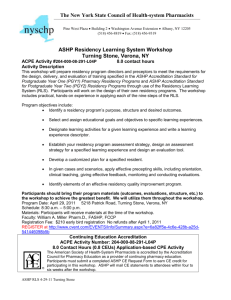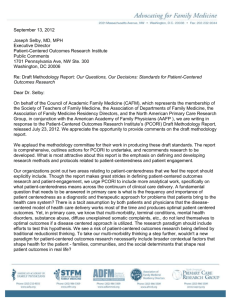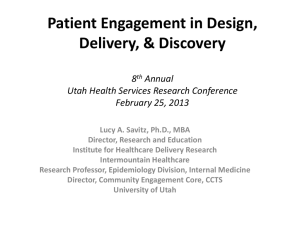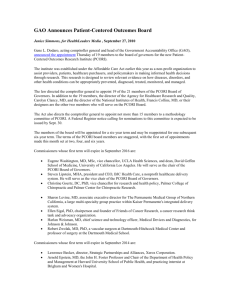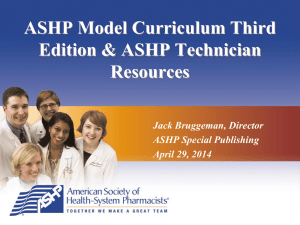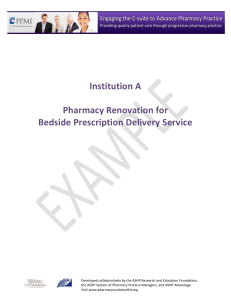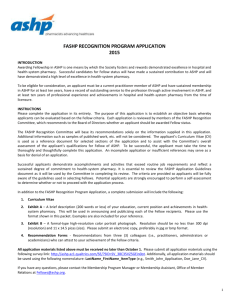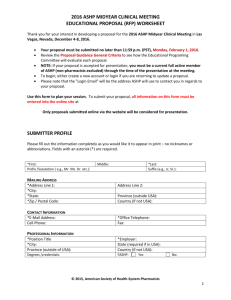PCORI peer review comments ASHP Smehta
advertisement
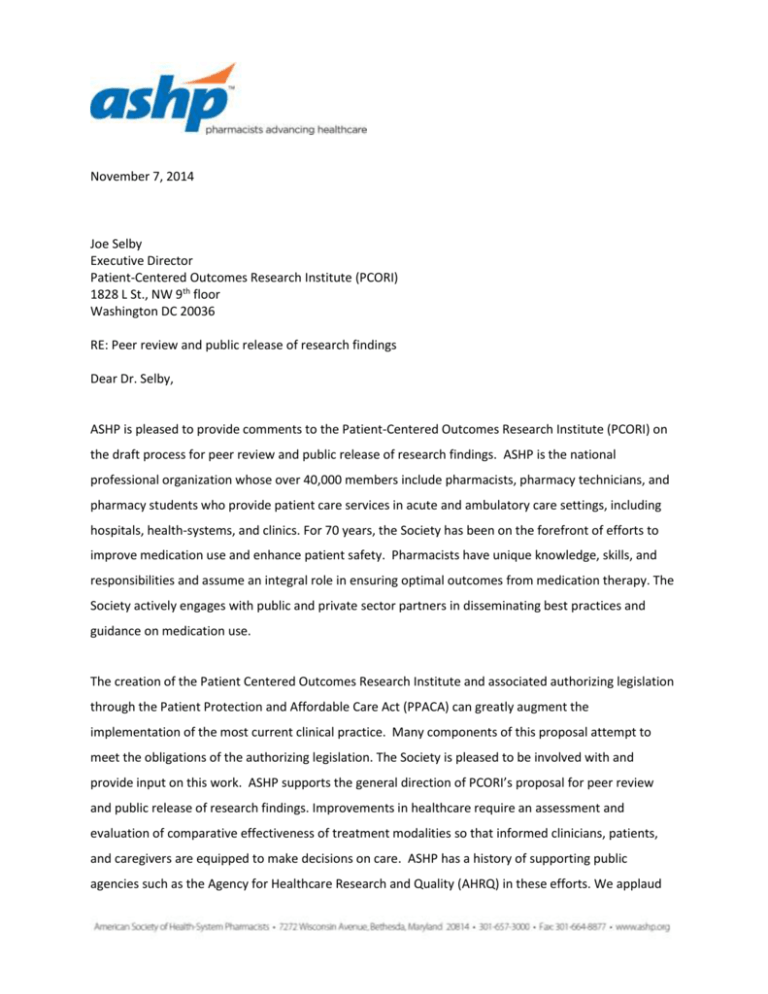
November 7, 2014 Joe Selby Executive Director Patient-Centered Outcomes Research Institute (PCORI) 1828 L St., NW 9th floor Washington DC 20036 RE: Peer review and public release of research findings Dear Dr. Selby, ASHP is pleased to provide comments to the Patient-Centered Outcomes Research Institute (PCORI) on the draft process for peer review and public release of research findings. ASHP is the national professional organization whose over 40,000 members include pharmacists, pharmacy technicians, and pharmacy students who provide patient care services in acute and ambulatory care settings, including hospitals, health-systems, and clinics. For 70 years, the Society has been on the forefront of efforts to improve medication use and enhance patient safety. Pharmacists have unique knowledge, skills, and responsibilities and assume an integral role in ensuring optimal outcomes from medication therapy. The Society actively engages with public and private sector partners in disseminating best practices and guidance on medication use. The creation of the Patient Centered Outcomes Research Institute and associated authorizing legislation through the Patient Protection and Affordable Care Act (PPACA) can greatly augment the implementation of the most current clinical practice. Many components of this proposal attempt to meet the obligations of the authorizing legislation. The Society is pleased to be involved with and provide input on this work. ASHP supports the general direction of PCORI’s proposal for peer review and public release of research findings. Improvements in healthcare require an assessment and evaluation of comparative effectiveness of treatment modalities so that informed clinicians, patients, and caregivers are equipped to make decisions on care. ASHP has a history of supporting public agencies such as the Agency for Healthcare Research and Quality (AHRQ) in these efforts. We applaud PCORI: peer review and public release of research findings November 7, 2014 Page 2 these agencies for their continued work in developing rigorous methodology and maintaining a publically accessible evidence base for clinical decision making. Peer Review Process ASHP agrees with the sequential process of conducting the peer-review first and then making the research results available within a specific timeframe. However, this method does present some challenges in terms of addressing differences between the finalized and published results and the summaries provided through PCORI. In section 3, ASHP recommends providing details and criteria for how the evidence and analysis of a submitted report can support the conclusion. For example, will the GRADE1 or similar approach be used by the peer reviewers in evaluating the evidence? Will an instrument be used such as the AGREE II2 tool to assess the quality of the clinical recommendation? There are a variety of existing tools and recommendations for translating evidence to clinical practice. Those to be used by the reviewers in the peer review process should be explicitly outlined prior to initiation of the process. The priorities of the research agenda are expected to describe some controversial treatment modalities. ASHP recommends developing a detailed and formalized process resolving and adjudicating disputes concerning therapeutic treatment options. This process should be transparent. Making Research Findings Publically Available ASHP believes the communication of medication related information has a great impact on strategies for adherence and optimizing medication therapy and associated outcomes. ASHP 1 Guyatt G, Oxman AD, Akl EA, et al. GRADE guidelines: 1. Introduction—GRADE evidence profiles and summary of findings tables. Journal of Clinical Epidemiology 2011;64(4):383-394. doi:10.1016/j.jclinepi.2010.04.026. 2 Appraisal of Guidelines for Research and Evaluation II. The AGREE Research Trust, May 2009 PCORI: peer review and public release of research findings November 7, 2014 Page 3 supports efforts by government agencies such as the Food and Drug Administration (FDA) and other stakeholders to improve the quality, consistency, and simplicity of written patient medication information. We encourage collaborative work with patient advocates to create evidence based standards and associated literacy levels. The information contained in the abstract related to medication use should be standardized, validated, pertinent and easily understandable. We strongly encourage PCORI to expand upon this section and provide details of how these translated abstracts will be developed to ensure optimal use. ASHP would be happy to provide our members and medication experts to assist in providing input on this process. The Society appreciates the opportunity to provide these comments. Please contact Shekhar Mehta, Director of Clinical Guidelines and Quality Improvement by telephone at (301)664-8815 or by email at smehta@ashp.org Sincerely, Shekhar Mehta Director, Clinical Guidelines and Quality Improvement
